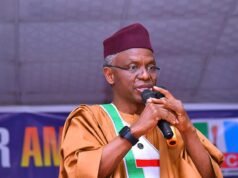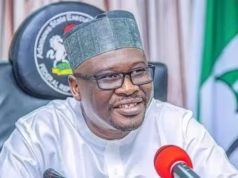As the Nigeria Computer Society (NCS) prepares for its annual Conference and General Meeting, members are not just voting for a new leadership—they are making a decision that could influence the nation’s entire digital trajectory for years to come.
This year’s election has been described by industry veterans as a critical turning point, especially in a country where technology has become one of the most dynamic drivers of economic and social change.
Table of Contents

A Pivotal Election, Not Routine Politics
For Jide Awe, a respected NCS fellow and technology advocate, this is more than a regular leadership transition—it’s an opportunity to reset the organisation’s relevance to Nigeria’s broader digital development goals.
He warns that the stakes are high because Nigeria’s future competitiveness rests on how well the country harnesses its most abundant asset: a young, tech-savvy population.
“We can’t afford to treat this as business as usual,” Awe emphasised. “This is about securing our place in the global digital economy.”
Why This Moment Matters
Nigeria’s youth population is the largest in Africa, with millions of young people actively engaging in emerging fields such as artificial intelligence, cloud computing, robotics, and digital entrepreneurship. Yet many of them face structural barriers—limited access to quality training, outdated curricula, poor infrastructure, and minimal industry mentorship.
The result? A growing reliance on self-learning, often without the tools or networks to compete globally. This has contributed to the brain drain—a steady flow of top talent leaving Nigeria for better opportunities abroad.
Awe warns that when a nation loses its brightest tech innovators, it is not just losing skills—it is surrendering control over its digital sovereignty.
The Vision Needed
To counter this, Awe envisions a more proactive NCS—one that:
- Shapes Policy: Actively influencing government decisions on ICT development and digital rights.
- Drives Education Reform: Partnering with schools and universities to modernise tech curricula.
- Builds Inclusion: Creating tangible opportunities for women, young people, and marginalised communities to thrive in the digital space.
- Forges Partnerships: Collaborating with government, private sector, and international stakeholders to fund and scale innovation.
- Mentors Future Leaders: Establishing nationwide mentorship frameworks to guide aspiring tech professionals.

The Role of NCS in Nigeria’s Digital Economy
The NCS is more than just a professional body—it has the potential to become a strategic driver of national digital transformation. Its influence can shape how policies are designed, how innovation ecosystems are nurtured, and how Nigeria positions itself in the global technology market.
The upcoming election is therefore a question of whether the Society will step into that leadership role—or continue to operate as a largely inward-looking organisation.
The Cost of Getting It Wrong
Without decisive, visionary leadership, Nigeria risks deepening its dependency on foreign technology and solutions. Local innovators may continue to be overshadowed by global competitors, while domestic start-ups struggle to scale due to a lack of funding, infrastructure, and enabling regulation.
The consequences go beyond lost economic opportunities—they touch on national security, data protection, and cultural preservation in an increasingly digital world.
What Members Must Consider
As voting day approaches, members are being urged to look beyond personal loyalties and consider the bigger picture. The ideal leadership team must combine:
- Technical Expertise: Leaders who understand the evolving global technology landscape.
- Strategic Thinking: The ability to align NCS initiatives with Nigeria’s national digital agenda.
- Inclusive Mindset: Commitment to bringing diverse voices—especially women and youth—into leadership and decision-making.
- Policy Advocacy Skills: Experience in engaging with lawmakers and influencing legislation.
A Chance to Lead Africa’s Digital Future
Nigeria already boasts some of Africa’s most promising tech start-ups and innovation hubs. From fintech platforms transforming payments to AI-driven health solutions, the potential is clear. What’s missing is a unifying body that can coordinate resources, amplify voices, and ensure Nigeria is not just catching up—but setting the pace.
A revitalised NCS could become that body, bridging the gap between government ambition and grassroots innovation.

The Way Forward
For Awe and other concerned stakeholders, the upcoming election is a rare opportunity to reimagine the role of NCS in Nigeria’s digital future. The choice before members is whether to vote for continuity or for change that positions the Society as a true national catalyst for computing development and digital transformation.
If visionary leaders are elected, Nigeria could see:
- Stronger policy advocacy for ICT reforms.
- More strategic investment in tech education.
- A surge in mentorship and skills development programmes.
- Greater collaboration between local innovators and global tech giants.
If not, the country risks another cycle of missed opportunities.
Conclusion
Nigeria’s digital destiny truly is at stake as the NCS heads to the polls. This is more than an internal election—it is a decision that could influence the country’s capacity to compete, innovate, and protect its sovereignty in a rapidly changing global digital order.
As Awe put it, “This is our chance to shape the future, and we must not waste it.”
Join Our Social Media Channels:
WhatsApp: NaijaEyes
Facebook: NaijaEyes
Twitter: NaijaEyes
Instagram: NaijaEyes
TikTok: NaijaEyes





